The slate has been announced for the 2023 election of Trustees and Membership Advisory Council. Please click here to review the information and learn how to submit a nomination.
Dr. Patrick J. Pagni, professor, scholar, and consultant passed away peacefully on February 1, 2026, at the age of 83.
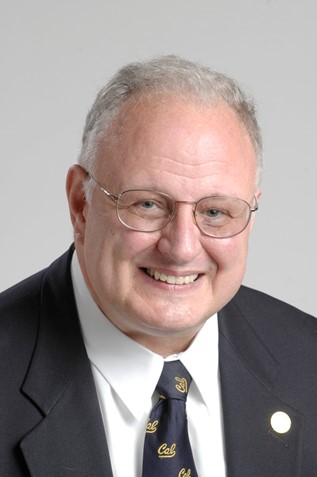
Born in Chicago, Illinois, Professor Patrick Pagni earned a Ph.D. in Mechanical Engineering from the Massachusetts Institute of Technology and went on to teach at the University of California, Berkeley, for more than 30 years. An expert in fire science, he was widely respected for his research and scholarship in combustion with emphasis on fire development. He was an excellent teacher and had the talent of explaining complex concepts in simple terms. This talent helped him to develop a very successful consulting career in fire litigation.
Throughout his career at U.C. Berkeley, Professor Pagni conducted pioneering fundamental research on a number of fire related problems that brought further understanding of the mechanisms controlling fire. Early on he studied smoke production from burning solid combustible materials and introduced the concept of “excess pyrolyzate” to describe unburned pyrolysis products. He showed that excess pyrolyzate has a determining role in the length of diffusion flames from burning solids. He also contributed to the theoretical modeling of smolder in porous materials, and of flame spread over solid and porous fuel beds. After the catastrophic fire in the Oakland Hills of 1991, he became interested in the modeling of wildland fire propagation, and the contribution of ember spotting on the rapid spread and hazards of wildland fires. Working with his graduate students he developed a numerical model of wildland fire propagation by ember spotting that is often referred to. His contribution to the fire community was not limited to his research, but also to the dissemination of fire as a societal problem. This was done through his leadership role in the International Association for Fire Safety Science (IAFSS): Professor Pagni was one of the founders of the IAFSS as a member of the first Organizing Committee in 1985; he was a member of the Executive Committee and Management Committee of the IAFSS for most of the 1990s and 2000s; he was also awarded the Howard W. Emmons Invited Plenary Lectureship in 2002 (one of the two most prestigious IAFSS Awards). In addition, during the 1980s and 1990s, Professor Pagni played a leading role in a collaboration on fire research between the National Institute of Standards and Technology (NIST) in the US and the Building Research Institute (BRI) in Japan.
At U.C. Berkeley Professor Pagni taught courses in the Department of Mechanical Engineering, including Thermodynamics, Heat Transfer and Combustion. He also developed a particularly interesting course on the application of the fundamentals of fire to analyze actual fires, such as the Oakland Hills wildland fire, among others. He was very dedicated to his teaching, preparing well organized and clear lectures that the students loved. He also mentored young colleagues, and numerous graduate students, interacting and working with them on a variety of fire-related subjects.
Beyond academia, Professor Pagni enjoyed collecting old maps and coins from around the world, some of them quite rare. He loved good food and wine and enjoyed explaining to his guests the origin of the wines. His wine testing reunions with bottles with no labels were quite fun, and often with surprising results.
He is survived by his wife, children and grandchildren; and a wide circle of colleagues, former students, and friends who will continue to carry his lessons and friendship forward.
A. Carlos Fernandez-Pello (University of California Berkeley, Berkeley CA, USA)
Research Associate in Fire Dynamics at King’s College London
We are looking to appoint a full-time (1.0 FTE) Research Associate to work for the next 2.5 years at the interlink of prevention and prediction of wildfire risk, by contributing to the development of a fundamental physical model to understand the process of fire spread for wildfires, as part of the European Research Council grant FIREMOD ( https://cordis.europa.eu/project/id/101161183).
This is a full time post, and you will be offered a fixed term 30-month contract.
At King’s, you will be part of an active research programme in the Heat and Fire Lab ( https://heatandfire.github.io/) in the Department of Engineering under the supervision of Dr Francesco Restuccia. Our group is focused on carrying out experimental and computational multidisciplinary research in the thermal sciences covering heat transfer, combustion, fire science, and bioenergy. Our interests range from helping develop more efficient and durable energy storage to understanding the fundamentals of ignition and fire spread for prevention of damage to people, property, and the environment from unwanted fires in topics such as wildfire and electrification. Our current projects focus on wildfire dynamics, battery fires, thermal management of Lithium-Ion batteries, and ignition research.
The research in this project at King’s aims at creating a detailed physical model to better understand and predict fire behaviour.
The project will study fire across different scales, include smouldering effects, and improve small and large-scale fire models. This approach will help manage wildfires more effectively and provide valuable tools for researchers.
Specifically this role will lay the foundation to enable:
1. Fire dynamic modelling for upscaling current lab scale models to field-scale fires
2. Supporting the development of a numerical model of ignition and flame spread based on fuel properties
3. Integrate transition from smouldering to flaming regimes when quantifying different fire spread regimes
4. Support experimental validation work at the lab scale on a variety of vegetation.
Candidates with a background in Fire Science and physics-based modelling are particularly encouraged to apply.
About you
To be successful in this role, we are looking for candidates to have the following skills and experience:
Essential criteria
1. PhD in Mechanical Engineering or in an area related to Fire Safety Engineering*.
2. Good knowledge and research experience in fire dynamics.
3. Publications in fire safety engineering or closely related area in peer-reviewed journals.
4. Proficiency in a Multiphysics software and fire dynamics simulation software (FDS or similar).
5. Knowledge of kinetics processes for vegetation.
6. Proficiency in Chemical Kinetics software (Cantera or similar)
Desirable criteria
1. Experience in experimental work for wildfires
2. Supervision experience of students at Masters or PhD level
*Please note that this is a PhD level role but candidates who have submitted their thesis and are awaiting award of their PhDs will be considered. In these circumstances the appointment will be made at Grade 5, spine point 30 with the title of Research Assistant. Upon confirmation of the award of the PhD, the job title will become Research Associate and the salary will increase to Grade 6
Interviews are due to be held in April 2026.
Where to apply
Website
Assistant Professor in Fire Safety Engineering
Purpose:
To contribute to student success by delivering high-quality teaching, supporting curriculum development, and advancing research within the field of Fire Safety Engineering.
Education:
PhD in fire safety/protection engineering, mechanical engineering, or other relevant engineering disciplines.
Minimum Qualifications:
- Minimum 3 years of teaching experience in Higher Education.
- Demonstrated research experience with a strong publication record in relevant fields.
- Familiarity with the implementation of quality assurance policies and procedures is preferred.
- Membership in a relevant professional organization (e.g., MIFireE, AIFireE, MSFPE, PMSFPE).
- Certified Fire Protection Specialist (CFPS) is preferred.
- Industrial experience in fire safety engineering is preferred.
Skills:
- Ability to work effectively as part of a team.
- Excellent written and verbal communication skills.
- Strong time management and organizational skills.
- Accurate record keeping and documentation.
- Creativity, initiative, and enthusiasm in teaching and research activities.
Work Duties
The Assistant Professor position is designed to help the faculty member develop independence as both a researcher and an educator. The role primarily involves research, teaching, and professional development.
Key Responsibilities:
- Teach courses at the undergraduate and postgraduate levels.
- Conduct research within the subject area.
- Supervise student projects and theses.
- Actively seek external research funding.
- Collaborate with industry and engage with the wider community.
- Perform administrative tasks related to the duties listed above.
Type of employment/Contract: Full time position
Salary: Monthly
Number of positions: 3
Country: Oman
Interested applicants are requested to send their CVs to HR@icem.edu.om
IAFSS Newsletter – Fire Safety Science News No 55
The Nov 2025 edition of the IAFSS Newsletter, the official newsletter of IAFSS is now available (Link for view and download).
Post-Doctoral Position in Fire Observation
Employer / Host Institution
Universitat Politècnica de Catalunya (UPC), CERTEC research group, Department of Chemical
Engineering, Barcelona, Spain
Supervision / PI
Dr. Ronan Paugam
Location
Barcelona, Spain
Sector / Type
Academic / Full time
Relevant Divisions / Fields
Atmospheric Sciences, Geosciences Instrumentation & Data Systems, Natural Hazards
Level / Experience
Experienced, Post-doctoral
Salary / Contract
Minimum €36,000 per year (gross), remunerated over 14 payments (12 months + two extras in
June and December).
Contract until 31 May 2028.
Required Education
PhD
Application Deadline
Open until the position is filled
Background
This position is part of the EUBURN project (Southern EUrope Biomass BURNing), which advances understanding of extreme wildfires in southern Europe, their climate and air quality impacts, and develops forecasting tools for direct (fire spread) and indirect (air pollution) risks. The project couples biodiversity, fire, and atmospheric processes across scales and aims to support operational services via measurement campaigns and open data sharing. A first campaign (SILEX) in July–August 2025 has tested instruments aboard the SAFIRE ATR-42 aircraft. A subsequent campaign (EUBURN-RISK) is planned in summer 2027, including drones, aircraft, ground platforms, and enhanced monitoring across France, Spain, and Portugal. Partner institutions include Météo-France (CNRM), AEMET, IPMA, University of Évora, UPC, and several other European and operational agencies.
UPC (CERTEC) focuses on fire observation, wildland and WUI fire behavior, fire modeling, and
risk analysis. The successful candidate will contribute to the fire observation component under
Dr. Paugam’s supervision.
Job Description / Tasks
The tasks of the post-doctoral researcher include:
- Process data from the 2025 SILEX campaign: compute Fire Radiative Power (FRP) using the midwave infrared (MWIR) camera aboard SAFIRE ATR-42, and compare with satellite sensors (e.g. VIIRS, SLSTR, FCI).
- Delineate fire fronts and compute Rate of Spread (ROS) from IR observations. Build on earlier methods developed by Dr. Paugam for helicopter observations; extend to operational scenarios. Fire front segmentation will be enhanced via machine learning, using EMA-INFACO’s data archive.
- Develop drone payload for fire activity observation during night flights: detect hotspot locations and intensities in real time. A key challenge is geolocating fire activity despite limited IMU accuracy; a spring 2026 prescribed burn in Andalusia will support required precision estimation, and a prototype will be tested in summer 2026 with EMA-INFACO.
- Facilitate integration of fire observation outputs with modeling teams within the EUBURN consortium.
- Assist in preparation and execution of the 2027 field campaign.
- Disseminate results via scientific publications, conference presentations, and stakeholder communications; contribute to project reports and internal workshops.
Candidate Profile / Requirements
- Holds a PhD in a relevant domain (e.g. remote sensing, fire science, atmospheric science, applied physics, engineering)
- Experience in satellite/airborne/infrared remote sensing, fire behavior monitoring, or data
processing - Skills in image processing, machine learning, geospatial data, and programming
- Ability to work independently, initiative in research, and effective communication skills
- Experience or interest in integrating observational data into modeling frameworks
How to Apply
Submit a CV and cover letter to ronan.paugam@upc.edu.
PhD Opportunity in Fire Engineering: Investigating Performance of Water-Based Fire Suppression
Applications are invited for a fully funded PhD scholarship (up to three years) in the Department of Civil and Environmental Engineering (University of Canterbury UC, New Zealand), under the main supervision of Dr Andres Valencia and co-supervision of academics of the fire engineering group at the UC. The project will be undertaken in close collaboration with Fire and Emergency New Zealand, who are providing funding support.
Description
Water is the most widely used agent for fire suppression, yet critical questions remain on how to optimise delivery methods for different fuels and scenarios. This PhD will focus on experimental and analytical investigations of water-based suppression systems, with emphasis on suppression performance, which can include:
- Firefighting hose streams: studying suppression against well-defined fires (e.g. known heat release profiles) and streams (e.g. well-known droplet distribution and flux).
- Sprinkler systems: studying dispersion and suppression against fires (e.g. known heat release profiles.) Characterizing dispersion flux.
- Emerging technologies (optional depending on additional funding and external collaborators): exploring the feasibility of drone-mounted water delivery systems for rapid initial attack.
The student will conduct laboratory-scale suppression experiments using fuels with clearly defined burning characteristics and heat release rate profiles. Experiments will be designed to expose fires to precisely characterised water fluxes, allowing quantitative assessment of suppression effectiveness. In parallel, the student will develop and apply analytical modelling frameworks (e.g., Valencia et al. 2021a and Valencia et al. 2021b) to interpret results and generalise findings beyond the lab scale. The results will directly support the development and refinement of standards and codes of practice, such as the NZ firefighting water supplies code (e.g. SNZ PAS 4509).
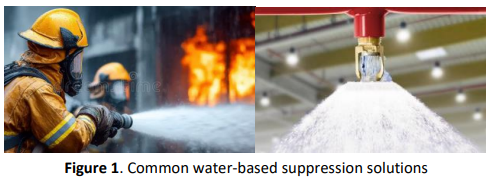
Expected outcome
The successful candidate will:
- Develop experimental protocols for assessing suppression effectiveness with hoses, sprinklers, and novel platforms.
- Quantify relationships between water application rate, droplet characteristics, and fire suppression outcomes.
- Provide data and insights to inform design standards, operational guidelines, and emerging technologies for fire services.
- Present results at leading international conferences and contribute to peer-reviewed publications.
Candidate Profile
Preferred applicants will have:
- A strong background in fire engineering, mechanical engineering, fluid dynamics, or related fields.
- Demonstrated experimental skills, ideally in combustion, heat transfer, or suppression systems.
- Strong analytical and coding ability (Python/Matlab/R) for processing experimental data.
- Interest in translational research that links laboratory experiments with real-world firefighting practice
Scholarship
Provider: Fire and Emergency New Zealand
Amount: NZD 32,000 per annum + domestic tuition fees (up to 4 years)
Location: Department of Civil and Environmental Engineering, University of Canterbury, Christchurch, New Zealand
Closing date: 7th November 2025. To apply, please send your CV, motivation letter and Transcript to Dr. Andres Valencia: andres.valencia@canterbury.ac.nz
Two Postdoc and PhD positions in fire modeling at the University of Maryland, USA
The Department of Fire Protection Engineering at the University of Maryland, College Park (UMD),
invites applications for one Postdoctoral Research Associate position and one Ph.D. research
assistantship position in computational modeling of Wildland Urban Interface (WUI)
conflagrations.
The spread of wildfires into WUI communities and their progression into urban fires has severely affected
our communities, resulting in loss of life and extensive damage to properties and infrastructure. A key
element in reducing these impacts and developing effective wildfire adaptation strategies is the ability to
understand and accurately model wildfire spread to and within WUI areas. The main research goal for
both roles is to enhance the mathematical representation of thermal degradation of solid fuel sources and
flaming and smoldering combustion processes in fire simulators and to extend their use to modeling WUI
fires at large spatial and temporal scales. The project will primarily contribute to the advancement of the
open-source fire modeling ecosystems, such as Fire Dynamics Simulator (FDS), and apply the model to
further our understanding of WUI fire spread using high-resolution physics-based simulations.
Job Description
● Postdoctoral Position: The successful candidate will collaborate with our team to develop a
framework for urban fire modeling in FDS; more specifically, building a modular framework for
constructing the computational domain and implementing a firebrand generation module in the
solver. The efforts will involve the integration of large-scale datasets in a computationally
efficient paradigm to enhance the applicability of the simulators in WUI fires.
● Ph.D. Position: The successful candidate will work within a collaborative team to implement a
novel char oxidation and smoldering-to-flaming transition model and conduct high-resolution
simulations and validation studies of WUI fire scenarios.
Qualifications
● Expertise in thermal degradation of solid fuel sources and combustion (reactive flow) modeling.
● Strong background in computational fluid and fire dynamics.
● Demonstrated expertise in fire modeling using Fire Dynamics Simulator (FDS).
● Strong programming skills in FORTRAN; familiarity with CUDA is an advantage.
Appointment
● The postdoctoral position is an 18-month appointment, renewable for an additional 12 months
based on performance and availability of funding.
● The Ph.D. position is a 36-month appointment, renewable until graduation.
● The Department of Fire Protection Engineering at UMD fosters interdisciplinary collaboration
with academic and industry partners and is committed to advancing fire and wildfire science.
How to apply
Submit your application package via email before October 15 to Prof. Arnaud Trouve
(atrouve@umd.edu) and Ali Tohidi (atohidi@umd.edu).
Applications must include:
● A cover letter elaborating on your interests, expertise, and why you are a good fit.
● Your full CV, along with an official copy of your transcripts/degree
● Email addresses of at least three references.
Two fully funded PhD scholarships at University of Canterbury, NZ
Applications are invited for two fully funded (four years maximum) PhD scholarships in the department of Civil and Natural Resources Engineering (New Zealand), to work on overpressure events in combustible compartment under the supervision of Dr Andres Valencia, Dr Aatif Khan and Emeritus Prof. Charles Fleischmann in the context of the Project “Investigating Overpressure Events in Combustible Compartments” funded by Fire Safety Research Institute.
Description
Fires are inherently unexpected and unpredictable events that threaten both the occupants and firefighters. One of the most unexpected phenomena in a compartment fire is an overpressure event (OPE) that can occur with no apparent flammable liquid or gas within the building. Sometimes referred to as a smoke explosion or backdraft, an OPE represents a significant danger to firefighters operating within the building due to its explosive nature that can cause burns and traumatic injuries. In this project, OPE in combustible compartment will be experimentally investigated in the state-of-the art fire facilities at UC. The student will design and perform experiments to
1. Determine the ventilation openings factors and geometry that result in an OPE in a combustible compartment.
2. Evaluate the compartment conditions (temperature and gas species) immediately preceding an OPE.
3. Quantify the intensity of an OPE based on the volume of the external fireball, compartment pressure, and maximum opening velocity.
4. Evaluate the impact of vertical ceiling obstruction, i.e. joists/rafters, on the intensity of an OPE over a range of opening factors.
Selected candidates will attend technical conferences and symposia to present their research results.
It is preferred that the candidates demonstrate strong experimental background in fire engineering and strong analytical skills using Python/R/Matlab.
Scholarship
Provided by: Fire Safety Research Institute
Amount: $32,000 per annum + tuition fees (New Zealand Dollars)
Closing date: 13th October 2025.
To apply, please send your CV, motivation letter and Transcript to Dr. Aatif Khan: aatif.khan@canterbury.ac.nz
Young Researcher Opportunity at ZAG, Slovenia
ZAG is offering postgraduate training opportunities for young researchers. Research areas and mentors are presented below.
- Assoc. Prof. Dr. Andrijana Sever Škapin
Research area: Sustainable use of resources in construction
Sustainable use of resources is an important aspect in construction, where society and industry are facing the problem ofCO2 emissions and significant energy consumption. The photocatalytic decomposition ofCO2 to energy-rich compounds offers both a solution to excessiveCO2 concentrations and the use of renewable energy sources (sunlight). In the field of photocatalysis, one project is currently underway at SM462 and one is due to be completed in 2024. The development of a method to evaluate photocatalyticCO2 reduction using the existing GC-MS system will be one of the first tasks of the MR. In future work, MR will focus on the preparation of new materials based on Nb2O5 and Nb2O5-TiO2 heterostructures. By developing new photocatalytic materials and understanding the links between synthetic parameters and material properties, he will contribute to the development of the field with the aim of increasing the efficiency of photocatalysis and eventually transferring knowledge into practice.
- Assoc. Prof. Andrea Lucherini, PhD.
Research area: Safety, resilience and adaptability of the built environment
The MR training programme develops highly qualified young researchers to carry out complex thermomechanical analyses of wood structures exposed to fire, in collaboration with world-leading institutions. The researcher will build on existing knowledge of wood ignition, heat transfer, pyrolysis, charring and flame propagation, which has traditionally only been studied under standard stove conditions. The key focus is on the decay and cooling phases of fire, which are often overlooked in fire design, but are crucial for timber structures. The aim of the programme is to develop advanced fire testing techniques using high performance radiant panels and reduced scale fire testing, with accurate quantification of temperature boundary conditions. The project will integrate structural analysis with multiphase computational models to improve performance-based fire design methodologies, leading to safer and more resilient timber buildings. The findings will support engineering guidelines and standards, benefiting researchers, engineers, architects and policy makers, while promoting wood as a sustainable building material and increasing the global competitiveness of timber construction.
The conditions for a young researcher are:
- has not completed a PhD or obtained the title of Doctor of Science,
- have a second-level degree in a relevant technical or natural science discipline,
- has not yet been employed as a young researcher,
- not more than 4 years have elapsed since the end of your studies; and
- meets the conditions for admission to a doctoral programme.
Description of works and tasks
- Carrying out the school requirements for the doctoral degree
- Carrying out research in projects under the guidance of a mentor
- Preparing your doctoral dissertation
- Demonstrated ability to carry out individual research independently
- Contributing to the drafting of terms of reference and opinions in the field of action
- Work on the certification of the conformity of construction products
- By order of the Supervisor, all the tasks for which he/she is qualified
More information and registration
A more detailed description is available on the website of the Employment Service of the Republic of Slovenia. To apply, you must be enrolled in a postgraduate programme in the academic year 2025/2026. Pending the selection procedure, a declaration that the candidate will graduate or nostrify his/her diploma by 15.9.2025 inclusive (documentation must be submitted to the ZAG by this date to be considered as valid fulfilment of the condition) will be sufficient in lieu of a copy of the diploma.
For more information, please contact the mentors: andrijana.skapin@zag.si and andrea.lucherini@zag.si.
Applicants are requested to indicate their registration number when applying. the posting on the ZRSZ, the job code and title of the post for which they are applying, and the field of research in which they are interested (as described).
Applications are invited until 15 August 2025 at kadri@zag.si.
PhD Studentship at Birmingham City University on AIDIGFIRE project
AIDIGFIRE: Developing smart buildings fire safety management using an integration of artificial intelligence and digital twin technologies
https://www.bcu.ac.uk/architecture-built-environment-computing-and-engineering
This funding model includes a 36 month fully funded PhD Studentship, set in-line with UK Research & Innovation values. For 2025/6, this will be £20,780 per year. The tax-free stipend will be paid monthly. This PhD Studentship also includes a Full-Time Fee Scholarship for up to 3 years. The funding is subject to your continued registration on the research degree, making satisfactory progression within your PhD, as well as attendance on and successful completion of the Postgraduate Certificate in Research Practice.
All applicants will receive the same stipend irrespective of fee status.
Application Closing Date:
Midday (UK Time) on Wednesday 17th September 2025 for a start date of 2nd February 2026.
How to Apply
To apply, please follow the below steps:
- Complete the BCU Online Application Form
- Complete the Doctoral Studentship Proposal Form in full, ensuring that you quote the project ID. You will be required to upload your proposal in place of a personal statement on the BCU online application form.
- Upload two references to your online application form (at least one of which must be an academic reference).
- Upload your qualification(s) for entry onto the research degree programme. This will be Bachelor/Master’s certificate(s) and transcript(s).
- International applicants must also provide a valid English language qualification. Please see the list of English language qualifications accepted here. Please check the individual research degree course page for the required scores.
Project title: Developing smart buildings fire safety management using an integration of artificial intelligence and digital twin technologies
Project Lead: Dr Javad Hashempour
Project ID: 13 – 46456414
Project description:
Fires in high-rise buildings can be challenging and difficult to manage and suppress. In recent years, fires in high-rise buildings have caused disasters resulting in death and injury, such as the Grenfell Tower fire in London in 2017, where 72 lives were lost. Regardless of what caused the fire, the fire service faced difficulties in spotting fires in the external cladding, which led to delays in identifying the fire’s location and, more importantly, delays in shifting from a stay-put strategy to full simultaneous evacuation due to the evolving situation. Therefore, having integrated systems that alert the fire service to fire conditions and occupant locations, and allow monitoring of fire and smoke progression through the building, is extremely essential.
This project aims to address this issue by developing a coupled AI–digital twin system that displays essential building fire safety information and provides real-time predictions of fire and smoke conditions in the building, as well as occupant locations and the status of the evacuation process. These capabilities include extracting data from fire detection and protection devices in the building, monitoring evacuation routes, and estimating the number of evacuees and occupants remaining inside.
The project will utilise advanced fire and smoke dynamic simulations to train machine learning models to understand how fire and smoke behave in a building. Once trained, the models will be able to predict the likely spread of fire and smoke based on real-time sensor inputs such as heat or smoke detectors. In addition, evacuation conditions will be monitored by training machine learning based detection algorithms to count the number of occupants leaving the building and identify the locations of remaining occupants.
This information will be visually mapped onto a digital model of the building for easy viewing and interpretation. The resulting digital twin platform will continuously update and display the current fire conditions in the building. During an emergency, this innovative tool will provide firefighters and building managers with critical, timely information to support better and faster decision-making, ultimately improving building fire safety and firefighting efforts.
Anticipated findings and contributions to knowledge:
This research is anticipated to deliver several important findings. The project will promote the use of building sensor data in machine learning–based real-time prediction models. It will establish the feasibility of using machine learning, trained on extensive fire simulation data, to rapidly and accurately predict the behaviour and spread of fire and smoke within high-rise buildings.
The significant contributions to knowledge include providing a novel, integrated approach to digital fire safety management. The developed digital twin will bridge gaps between static fire safety documentation, real-time fire detection and protection sensor data, and predictive modelling. This innovative framework will set a new benchmark for how fire safety information is managed, visualised, and utilised during emergencies.
Moreover, the research outcomes will advance the theoretical understanding of data integration in digital twin platforms. It will demonstrate practical methods to enhance building fire safety practices, improve emergency response capabilities, and inform future building fire safety regulations and standards, supported by abundant data from real fire incidents.
Person Specification:
We are seeking a highly motivated and capable candidate to support a project at the intersection of fire safety engineering, computational modelling, and emerging digital technologies. This position is ideal for graduates in computer science or computer/electronic engineering with experience in the application of machine learning. However, applicants with other relevant engineering backgrounds, such as fire engineering, mechanical engineering, architectural engineering, or civil engineering, with proven experience in applying machine learning will also be considered.
While an MEng or MSc qualification in a relevant field is desirable, equivalent industry experience with a BEng or BSc will also be considered. The successful candidate should have applied programming skills to develop, train, and validate machine learning models, along with a sound understanding of algorithm selection, model evaluation, and the interpretation of results. The candidate must demonstrate strong analytical and problem-solving abilities, particularly in working with complex datasets and interpreting outputs within the context of the built environment and fire safety.
A working understanding of digital twin technology and its applications, such as how digital twins integrate simulation, monitoring, and real-time data to support improved decision-making, is desirable but not essential. The ideal candidate will have experience working across disciplines, including fire safety engineering, building engineering, and computational modelling. Strong communication skills, both written and verbal, are important, as the role involves presenting complex technical information to both technical and non-technical audiences. Collaboration and teamwork are essential; the candidate should be confident working independently as well as part of a multidisciplinary team.
Overseas applicants:
International applicants must also provide a valid English language qualification, such as International English Language Test System (IELTS) or equivalent with an overall score of 6.5 with no band below 6.0.
Contact:
If you have any questions or need further information, please use the contact details below:
– For enquiries about the funding or project proposal, please contact: javad.hashempour@bcu.ac.uk
– For enquiries about the application process, please contact: research.admissions@bcu.ac.uk

 Dr Natalia Flores-Quiroz is a researcher with experience in fire safety engineering. She worked for five years as a fire safety engineer in the mining industry before joining academia. She holds a MSc in fire safety from Ghent University, and her PhD focused on Fire investigations in Informal Settlements. Currently she is a lecturer at Stellenbosch University, where her main research areas are reconstruction of incidents in low-income settlements (i.e., informal settlements, refugee camps) and wildland urban interface (WUI) fires.
Dr Natalia Flores-Quiroz is a researcher with experience in fire safety engineering. She worked for five years as a fire safety engineer in the mining industry before joining academia. She holds a MSc in fire safety from Ghent University, and her PhD focused on Fire investigations in Informal Settlements. Currently she is a lecturer at Stellenbosch University, where her main research areas are reconstruction of incidents in low-income settlements (i.e., informal settlements, refugee camps) and wildland urban interface (WUI) fires.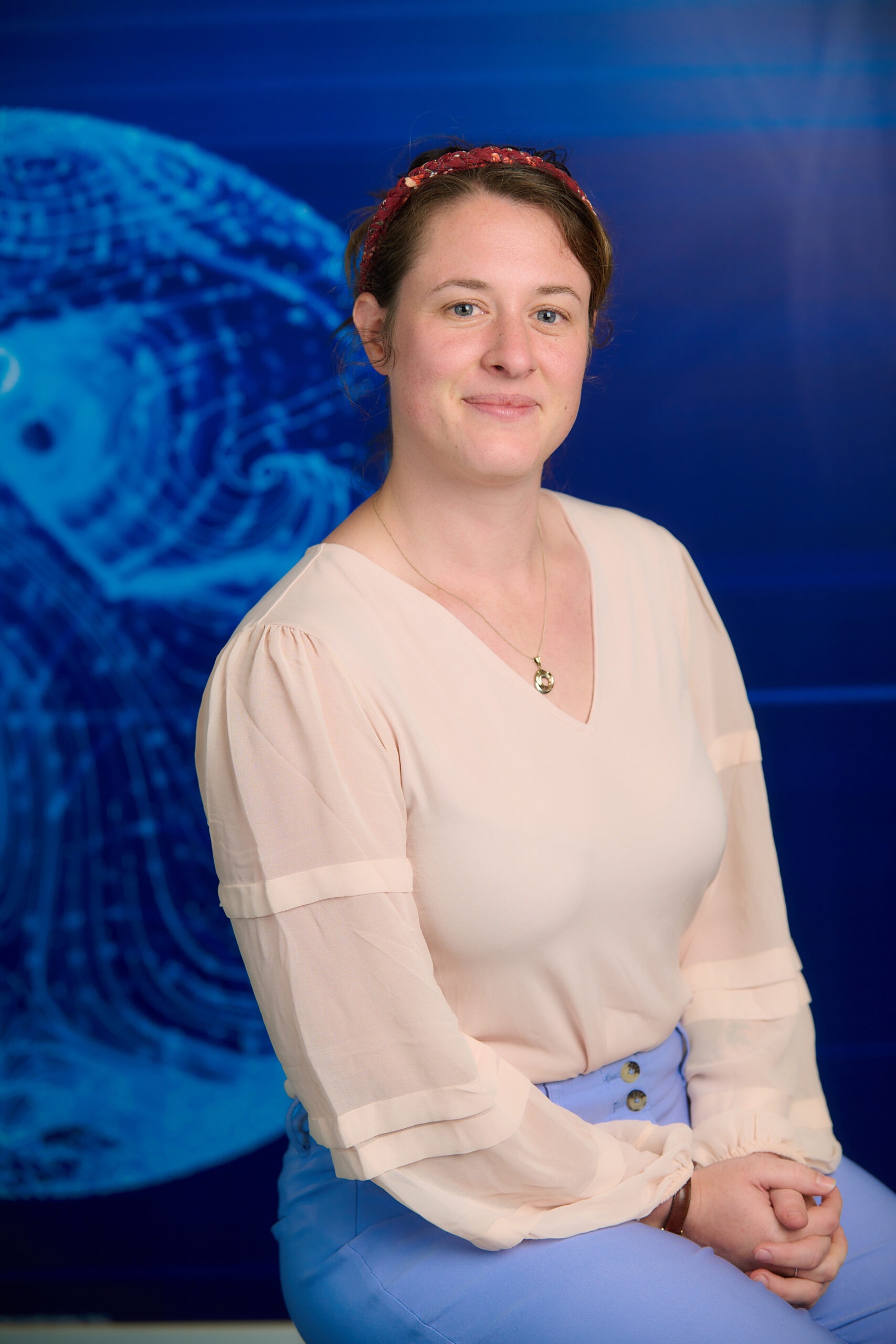 Bronwyn Forrest is a 3rd year PhD student at the University of Waterloo, conducting multi-disciplinary research investigating human physiological response to fire exposure. Bronwyn graduated in 2017 with a BSc. Honours Kinesiology and in 2020 with a MASc. Mechanical & Mechatronics Engineering (Heat Release Rate in Ventilation-Limited Furniture Fires) before merging her two degrees in her PhD research. As a senior graduate student in the Fire Research Group, Bronwyn spear-heads large-scale fire experiments, mentors junior graduate and undergraduate students, and has recently set-up a new ‘human exposure lab’ at the Fire Research Facility where she leads new research in that area. Since her induction into the world of fire science, Bronwyn has grown more and more passionate about the multi-faceted nature of emerging fire safety challenges. Through innovative research, she hopes to make meaningful contributions that help shape changes to fire safety over the course of her career.
Bronwyn Forrest is a 3rd year PhD student at the University of Waterloo, conducting multi-disciplinary research investigating human physiological response to fire exposure. Bronwyn graduated in 2017 with a BSc. Honours Kinesiology and in 2020 with a MASc. Mechanical & Mechatronics Engineering (Heat Release Rate in Ventilation-Limited Furniture Fires) before merging her two degrees in her PhD research. As a senior graduate student in the Fire Research Group, Bronwyn spear-heads large-scale fire experiments, mentors junior graduate and undergraduate students, and has recently set-up a new ‘human exposure lab’ at the Fire Research Facility where she leads new research in that area. Since her induction into the world of fire science, Bronwyn has grown more and more passionate about the multi-faceted nature of emerging fire safety challenges. Through innovative research, she hopes to make meaningful contributions that help shape changes to fire safety over the course of her career.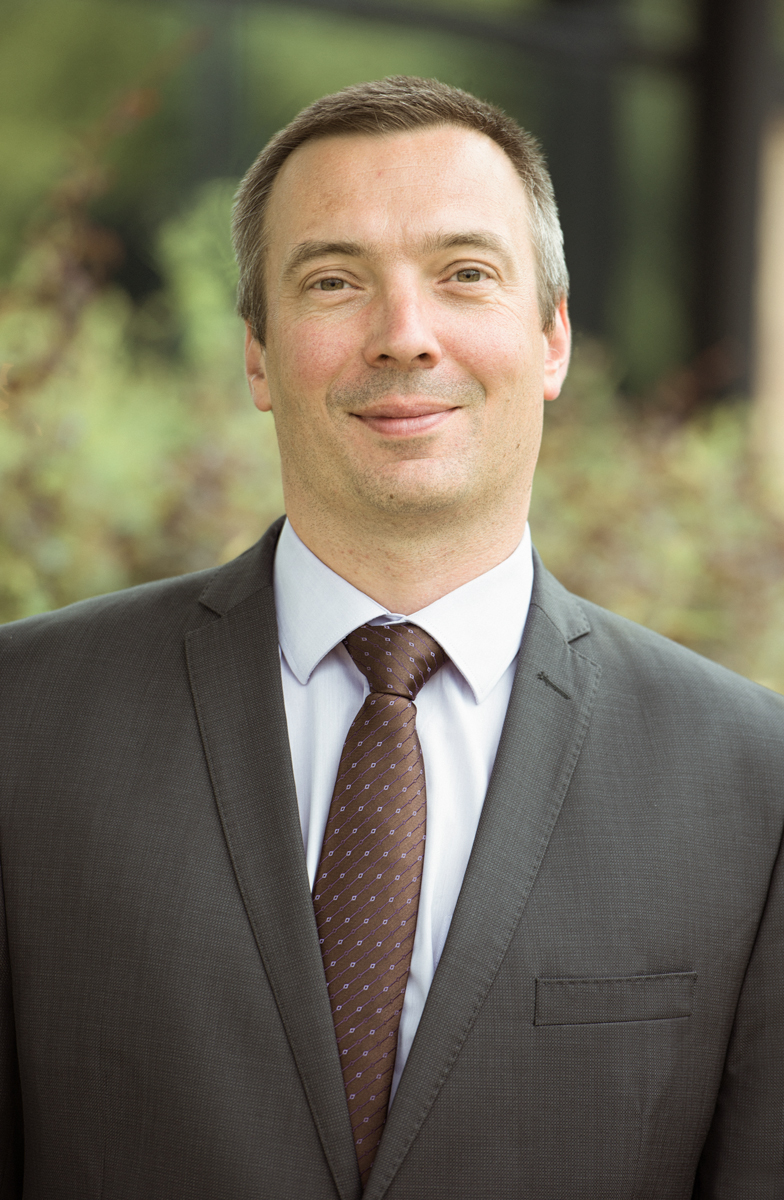 Dr. (HDR) Eric Guillaume has worked in fire sciences since 1998. He formerly led the fire behaviour department of SNCF (French Railway), then changed company in 2005 to join LNE (The French National Laboratory for Testing and Metrology) as head of Fire safety studies department, and later as head of research for whole testing activities of LNE. Nowadays (since 2015), he works for Efectis France, first as Technical Director and more recently as General Manager of the company, leading one of the most important fire testing and fire safety engineering companies in Europe (With approx. 180 people and 28 M€ turnover)
Dr. (HDR) Eric Guillaume has worked in fire sciences since 1998. He formerly led the fire behaviour department of SNCF (French Railway), then changed company in 2005 to join LNE (The French National Laboratory for Testing and Metrology) as head of Fire safety studies department, and later as head of research for whole testing activities of LNE. Nowadays (since 2015), he works for Efectis France, first as Technical Director and more recently as General Manager of the company, leading one of the most important fire testing and fire safety engineering companies in Europe (With approx. 180 people and 28 M€ turnover)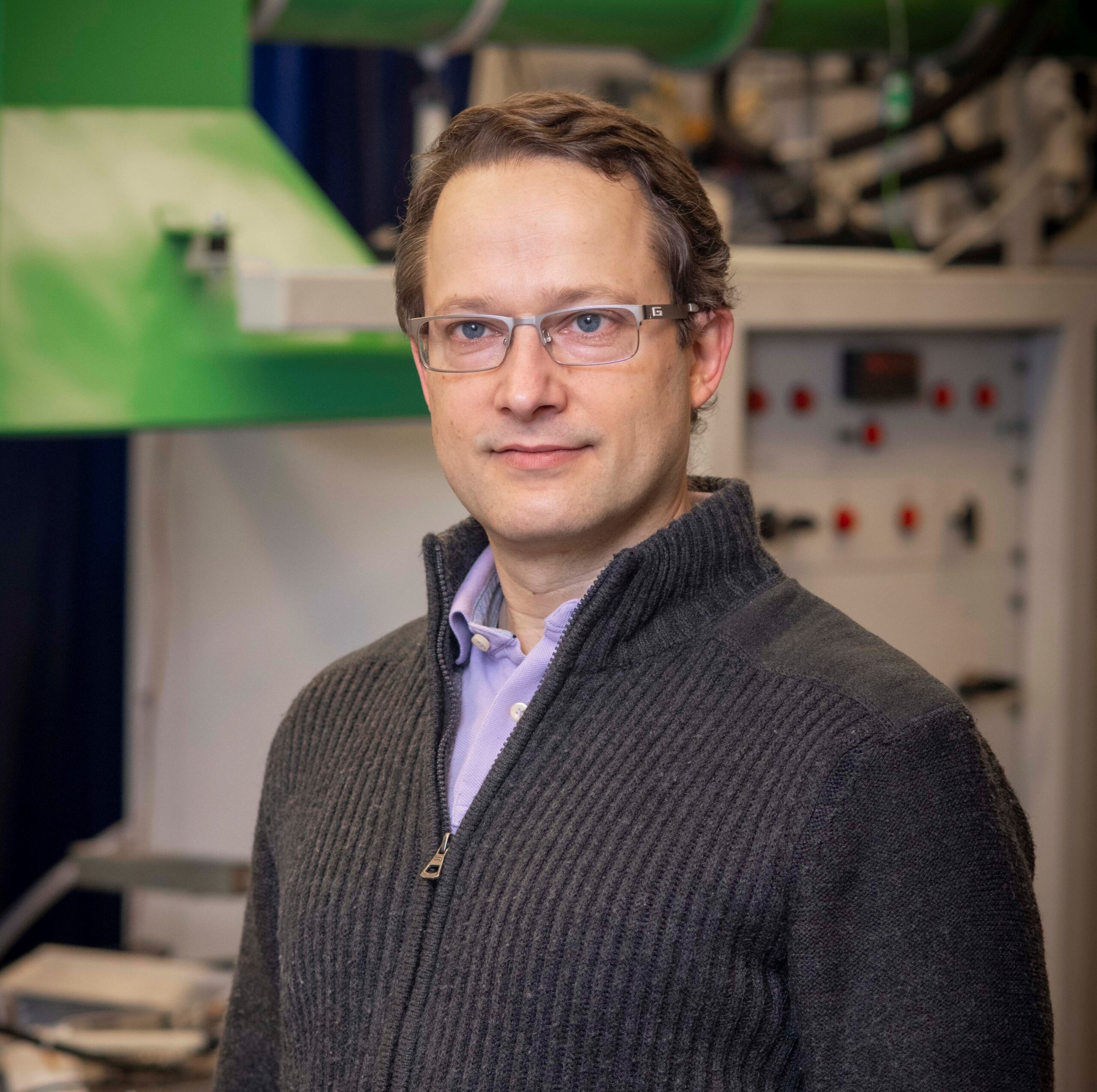 Dr. Albert Simeoni is Professor and the Department Head of Fire Protection Engineering at Worcester Polytechnic Institute (WPI). He is the WPI site director of the Wildfire Interdisciplinary Research Center (WIRC), an Industry-University Cooperative Research Center (IUCRC) of the National Science Foundation (NSF) in the United States. Dr. Simeoni has served IAFSS by being chair or co-chair of the Wildland Fire track (2014, 2020 and 2023), Co-chair of the Awards Committee for the Best Thesis Awards (2023), Associate-Editor of Fire Safety Journal (2010-2015), member of the Editorial Board of Fire Safety Journal (since 2016), and Contributing Editor of Fire Safety Science News (since 2011).
Dr. Albert Simeoni is Professor and the Department Head of Fire Protection Engineering at Worcester Polytechnic Institute (WPI). He is the WPI site director of the Wildfire Interdisciplinary Research Center (WIRC), an Industry-University Cooperative Research Center (IUCRC) of the National Science Foundation (NSF) in the United States. Dr. Simeoni has served IAFSS by being chair or co-chair of the Wildland Fire track (2014, 2020 and 2023), Co-chair of the Awards Committee for the Best Thesis Awards (2023), Associate-Editor of Fire Safety Journal (2010-2015), member of the Editorial Board of Fire Safety Journal (since 2016), and Contributing Editor of Fire Safety Science News (since 2011). Brian J. Meacham, PhD, PE (CT&MA), EUR ING, CEng (UK), FIFireE, FSFPE, is the Managing Principal of Meacham Associates. He develops risk-informed performance-based solutions to complex building and infrastructure challenges, provides peer-review services, and undertakes building and fire regulatory system studies. He also conducts research in these areas as well as in sustainable and fire resilient built environments and fire safety technologies. Brian has authored more than 300 publications, given more than 300 presentations and has been awarded more than $4M in research funding. His prior positions include Associate Professor of Fire Protection Engineering at Worcester Polytechnic Institute, Principal at Arup, Technical Director and Research Director at SFPE, and fire safety engineer in Europe and the USA. Brian is Chair of the ICC Performance Code Committee, Chair of the NFPA Technical Committee on Fire Risk Assessment Methods, Immediate Past Chair of the International Association for Fire Safety Science (IAFSS), a Past President of the SFPE, and a past Chair of the Inter-jurisdictional Regulatory Collaboration Committee (IRCC). He is a licensed Professional Engineer in CT and MA, a Chartered Engineer and Fellow of the Institution of Fire Engineers (UK), a registered European Engineer (EUR ING), a Fellow of the SFPE, and a Fulbright Global Scholar.
Brian J. Meacham, PhD, PE (CT&MA), EUR ING, CEng (UK), FIFireE, FSFPE, is the Managing Principal of Meacham Associates. He develops risk-informed performance-based solutions to complex building and infrastructure challenges, provides peer-review services, and undertakes building and fire regulatory system studies. He also conducts research in these areas as well as in sustainable and fire resilient built environments and fire safety technologies. Brian has authored more than 300 publications, given more than 300 presentations and has been awarded more than $4M in research funding. His prior positions include Associate Professor of Fire Protection Engineering at Worcester Polytechnic Institute, Principal at Arup, Technical Director and Research Director at SFPE, and fire safety engineer in Europe and the USA. Brian is Chair of the ICC Performance Code Committee, Chair of the NFPA Technical Committee on Fire Risk Assessment Methods, Immediate Past Chair of the International Association for Fire Safety Science (IAFSS), a Past President of the SFPE, and a past Chair of the Inter-jurisdictional Regulatory Collaboration Committee (IRCC). He is a licensed Professional Engineer in CT and MA, a Chartered Engineer and Fellow of the Institution of Fire Engineers (UK), a registered European Engineer (EUR ING), a Fellow of the SFPE, and a Fulbright Global Scholar.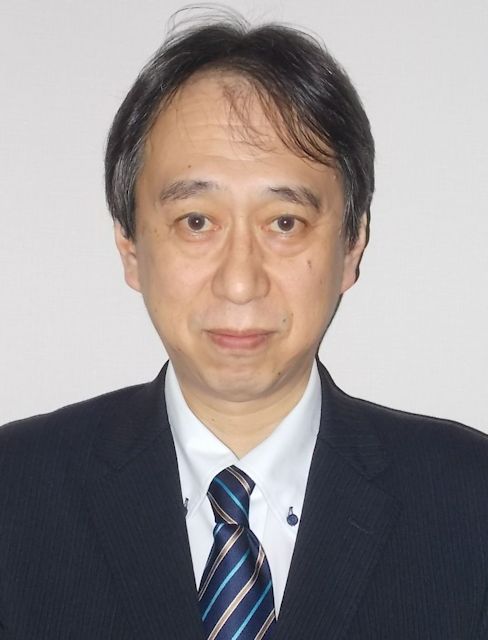 Kazunori Harada is a professor of architecture & architectural engineering at Kyoto University, Japan. He has a career in fire research for over 35 years. He has authored 14 IAFSS symposium papers. His expertise covers the fire resistance of construction materials, smoke movement and control, burning of combustibles in open and compartment, performance-based code & design of buildings and so on. He serves as a vice president of AOAFST, Asia-Oceania Association of Fire Science and Technology. He also serves as the Convenor of ISO/TC92/SC4 WG9, calculation methods for fire safety engineering (FSE), which develops calculation standards concerning FSE.
Kazunori Harada is a professor of architecture & architectural engineering at Kyoto University, Japan. He has a career in fire research for over 35 years. He has authored 14 IAFSS symposium papers. His expertise covers the fire resistance of construction materials, smoke movement and control, burning of combustibles in open and compartment, performance-based code & design of buildings and so on. He serves as a vice president of AOAFST, Asia-Oceania Association of Fire Science and Technology. He also serves as the Convenor of ISO/TC92/SC4 WG9, calculation methods for fire safety engineering (FSE), which develops calculation standards concerning FSE.
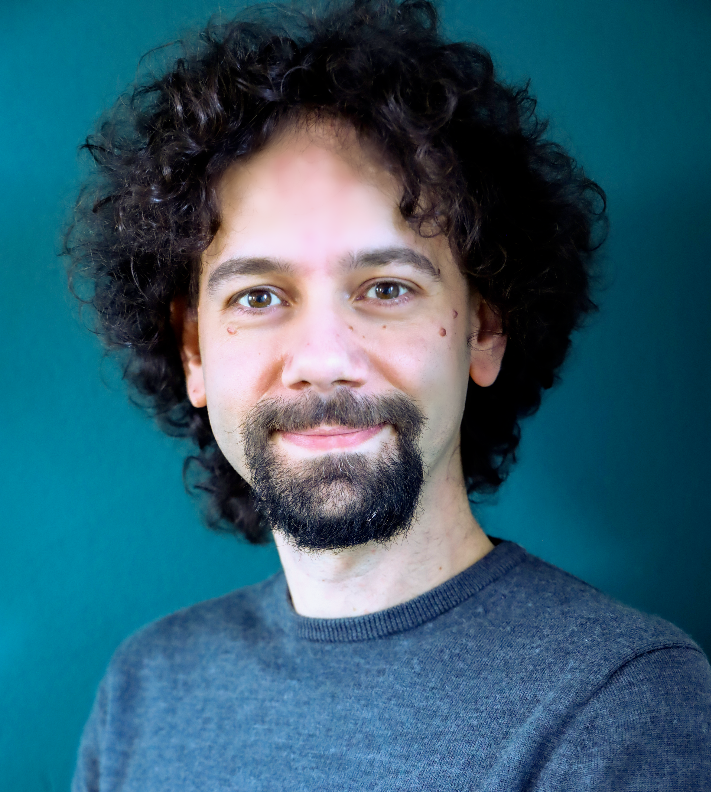 Enrico Ronchi is an Associate Professor at Lund University, Sweden. His research and education activities are focused on evacuation and human behaviour in case of building fires and wildfires. His work has been published in over 150 publications (including >90 peer-reviewed journal papers). He is currently Associate Editor for the journals Fire Technology and Safety Science and member of the editorial board of the Fire Safety Journal.
Enrico Ronchi is an Associate Professor at Lund University, Sweden. His research and education activities are focused on evacuation and human behaviour in case of building fires and wildfires. His work has been published in over 150 publications (including >90 peer-reviewed journal papers). He is currently Associate Editor for the journals Fire Technology and Safety Science and member of the editorial board of the Fire Safety Journal. Jennifer Wen is currently Professor of Energy Resilience in the School of Mechanical Engineering Sciences, University of Surrey as Professor. Previously, Jennifer held positions at Computational Dynamics Limited (founding vendor of STAR-CCM), British Gas plc, South Bank University, Kingston University London, and University of Warwick. She is a Fellow of the Institution of Mechanical Engineers and Vice-Chair for Research for the International Association for Fire Safety Science. Jennifer is also a member and sub-task leader of the European Safety Panel on Hydrogen Safety (EHSP) established by the Fuel Cell and Hydrogen Joint Undertaking (now Clean Hydrogen Partnership) of the European Commission. She is an Associate Editor for the Proceedings of the Combustion Institute.
Jennifer Wen is currently Professor of Energy Resilience in the School of Mechanical Engineering Sciences, University of Surrey as Professor. Previously, Jennifer held positions at Computational Dynamics Limited (founding vendor of STAR-CCM), British Gas plc, South Bank University, Kingston University London, and University of Warwick. She is a Fellow of the Institution of Mechanical Engineers and Vice-Chair for Research for the International Association for Fire Safety Science. Jennifer is also a member and sub-task leader of the European Safety Panel on Hydrogen Safety (EHSP) established by the Fuel Cell and Hydrogen Joint Undertaking (now Clean Hydrogen Partnership) of the European Commission. She is an Associate Editor for the Proceedings of the Combustion Institute.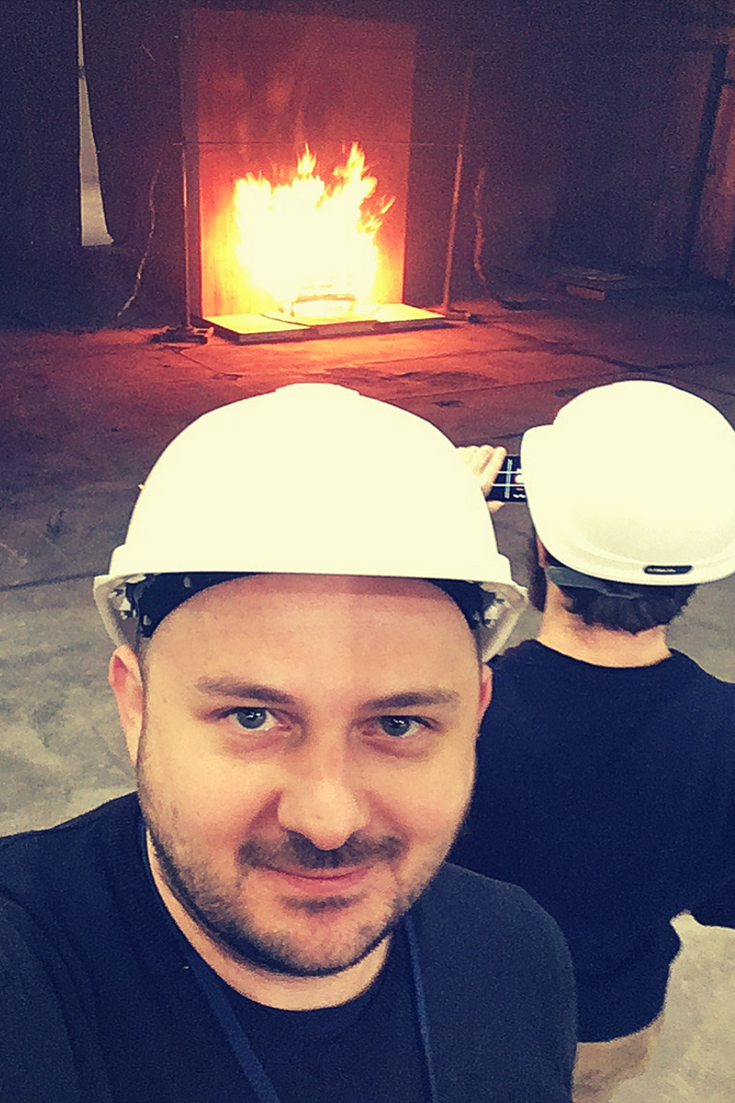 Dr Wojciech Węgrzyński is with ITB, that is the Polish Building Research Institute in Warsaw. He currently holds the position of the Deputy Head of Fire Research Department and the Professor of the Institute, and a Director at SFPE Europe. He is the Author of 40 peer-reviewed papers published in all of the primary FSE journals. His main area of interest is the fundamentals of compartment fire dynamics and standardized fire testing, and also: use of computational fluid dynamics in fire, wind and fire interaction and evaluation of the effects of the spread of smoke in buildings. His research is focused on the impact of the architectural context of the building on the smoke control performance, as well as finding solutions to make the smoke exhaust systems cheaper and more efficient. Member of the Sub-committee for Research of the IAFSS. 2018 NFPA Harry C. Bigglestone Award Recipient; 2019 Jack Watts Award Recipient; 2020 SFPE 5 Under 35 Award Recipient. Member of Editorial Board of ‘Fire Technology. Hosts a fire podcast at
Dr Wojciech Węgrzyński is with ITB, that is the Polish Building Research Institute in Warsaw. He currently holds the position of the Deputy Head of Fire Research Department and the Professor of the Institute, and a Director at SFPE Europe. He is the Author of 40 peer-reviewed papers published in all of the primary FSE journals. His main area of interest is the fundamentals of compartment fire dynamics and standardized fire testing, and also: use of computational fluid dynamics in fire, wind and fire interaction and evaluation of the effects of the spread of smoke in buildings. His research is focused on the impact of the architectural context of the building on the smoke control performance, as well as finding solutions to make the smoke exhaust systems cheaper and more efficient. Member of the Sub-committee for Research of the IAFSS. 2018 NFPA Harry C. Bigglestone Award Recipient; 2019 Jack Watts Award Recipient; 2020 SFPE 5 Under 35 Award Recipient. Member of Editorial Board of ‘Fire Technology. Hosts a fire podcast at 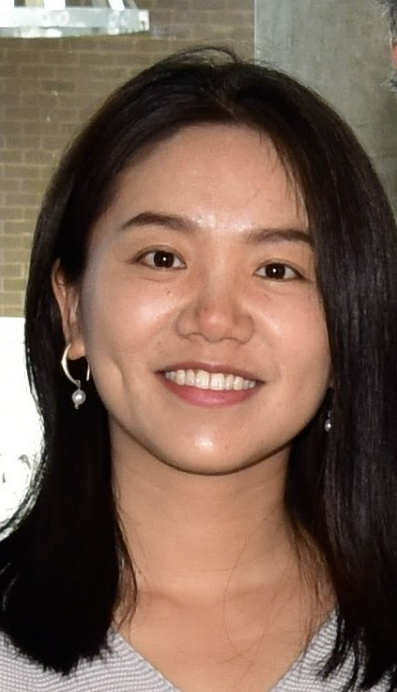 Dr. Shuna Ni is an Assistant Professor in the Department of Fire Protection Engineering at the University of Maryland, College Park. She received her Ph.D. degree at Texas A&M University in 2018 and her Master’s degree at Tongji University in 2013. Dr. Ni’s research focuses on fire forensics, structural fire engineering, WUI fire resilience, fire safety of tall mass-timber buildings and fire-related multiple hazards. Her research has been funded by National Science Foundation, National Institute of Justice, Fire Protection Research Foundation, University Transportation Centers under the Department of Transportation, Grand Challenges Grants Program at the University of Maryland and industrial partners.
Dr. Shuna Ni is an Assistant Professor in the Department of Fire Protection Engineering at the University of Maryland, College Park. She received her Ph.D. degree at Texas A&M University in 2018 and her Master’s degree at Tongji University in 2013. Dr. Ni’s research focuses on fire forensics, structural fire engineering, WUI fire resilience, fire safety of tall mass-timber buildings and fire-related multiple hazards. Her research has been funded by National Science Foundation, National Institute of Justice, Fire Protection Research Foundation, University Transportation Centers under the Department of Transportation, Grand Challenges Grants Program at the University of Maryland and industrial partners. Brian Lattimer, Ph.D. is a Professor in Mechanical Engineering at Virginia Tech where he performs experimental and computational research on fire safety and disaster resilience. He has nearly 30 years of experience in fire related research. His research areas include material behavior in fires, fire dynamics, suppression agents, heat transfer from fires to surfaces, structural response during fire, and firefighting technology.
Brian Lattimer, Ph.D. is a Professor in Mechanical Engineering at Virginia Tech where he performs experimental and computational research on fire safety and disaster resilience. He has nearly 30 years of experience in fire related research. His research areas include material behavior in fires, fire dynamics, suppression agents, heat transfer from fires to surfaces, structural response during fire, and firefighting technology. Yu Wang is a professor at the State Key Laboratory of Fire Science, University of Science and Technology of China (USTC). He got joint Ph.D. from USTC and the City University of Hong Kong in 2016 and had working experience at the University of Edinburgh, Worcester Polytechnic Institute and National University of Singapore before returning to China in 2020. His primary research areas are high-rise building fire and large outdoor fire. Yu has published over 50 SCI journal papers, and is currently an Associate Editor in Fire Technology and Editorial Board Member in Fire Safety Journal. He initiated the first English fire course at USTC, Introduction of Fire Dynamics, reported by China News and People’s Daily Online (over 260,000 audiences). In recent years, he has received SFPE Global 5 Under 35 Award, Youth May Fourth Medal (Anhui Province), Young Faculty Career Award (USTCAF), and some Best Paper/Presentation/Poster/Image Awards in IAFSS or AOSFST.
Yu Wang is a professor at the State Key Laboratory of Fire Science, University of Science and Technology of China (USTC). He got joint Ph.D. from USTC and the City University of Hong Kong in 2016 and had working experience at the University of Edinburgh, Worcester Polytechnic Institute and National University of Singapore before returning to China in 2020. His primary research areas are high-rise building fire and large outdoor fire. Yu has published over 50 SCI journal papers, and is currently an Associate Editor in Fire Technology and Editorial Board Member in Fire Safety Journal. He initiated the first English fire course at USTC, Introduction of Fire Dynamics, reported by China News and People’s Daily Online (over 260,000 audiences). In recent years, he has received SFPE Global 5 Under 35 Award, Youth May Fourth Medal (Anhui Province), Young Faculty Career Award (USTCAF), and some Best Paper/Presentation/Poster/Image Awards in IAFSS or AOSFST.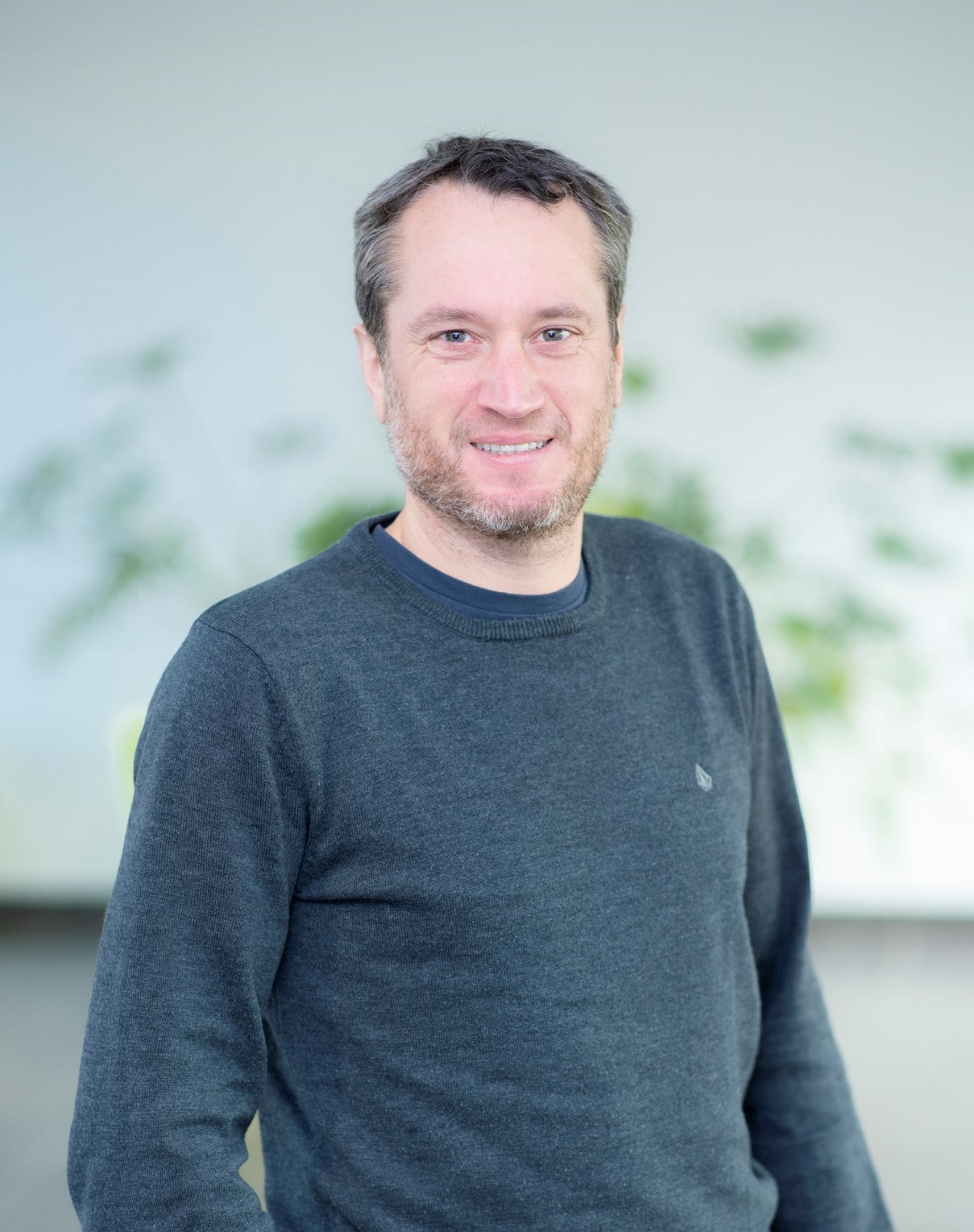 ROGAUME Thomas is an Professor at the University of Poitiers – Pprime Institute (UPR3346 CNRS), FRANCE.
ROGAUME Thomas is an Professor at the University of Poitiers – Pprime Institute (UPR3346 CNRS), FRANCE.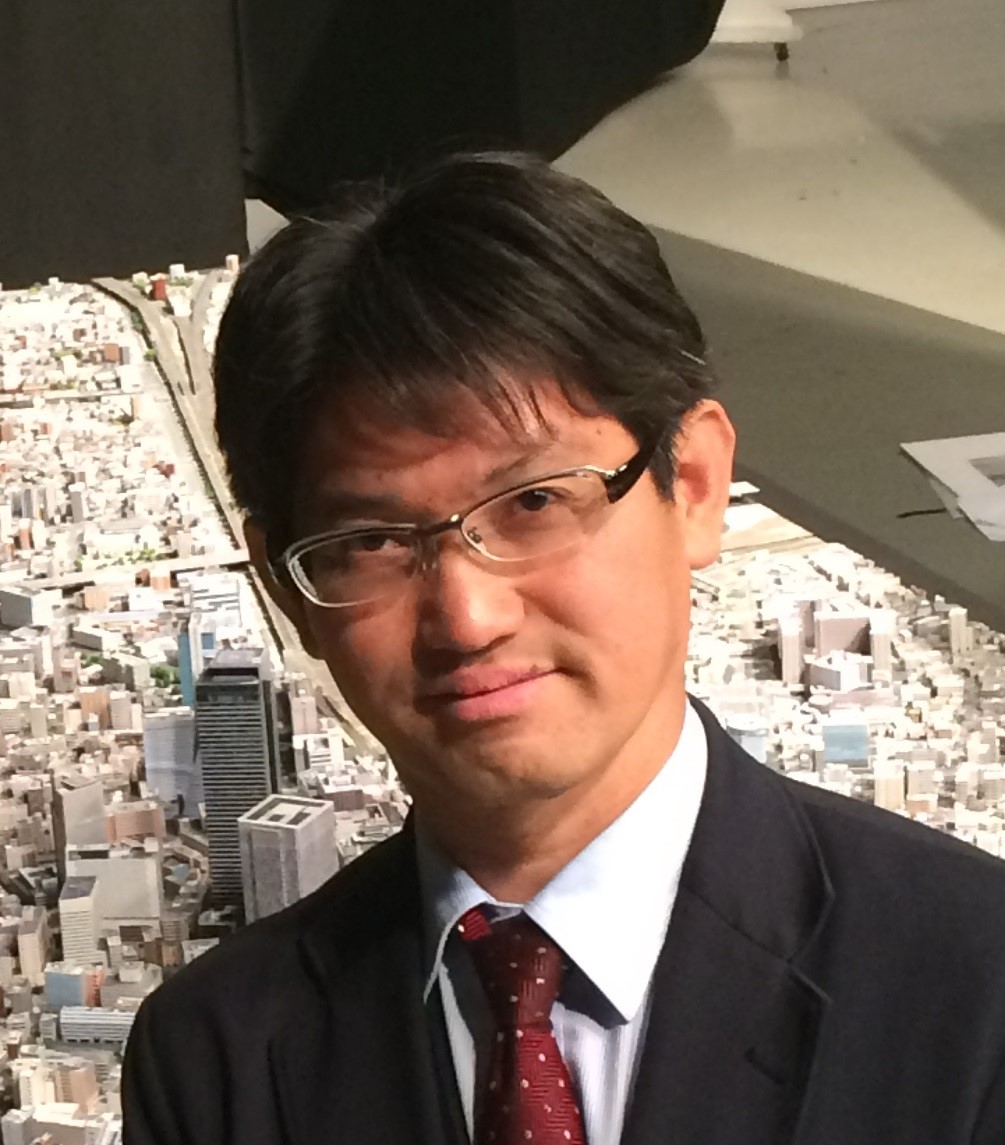 Prof. Yuji Nakamura is Full Professor in Department of Mechanical Engineering, Toyohashi University of Technology (TUT), appointed as Affiliate Full Professor in Center for Fire Science and Technology, Tokyo University of Science (since 2014). He currently serves the Head of Energy Conversion Laboratory and appointed as Department Chair since 2024. Prof. Nakamura has made professional service in Fire Science Community served as Management Committee of IAFSS during 2021-2023, worked as Co-chair of LOC in the most recent IAFSS symposium at Tsukuba, acting Associate Editor of Fire Technology since 2014 and board member of Fire Safety Journal since 2017.
Prof. Yuji Nakamura is Full Professor in Department of Mechanical Engineering, Toyohashi University of Technology (TUT), appointed as Affiliate Full Professor in Center for Fire Science and Technology, Tokyo University of Science (since 2014). He currently serves the Head of Energy Conversion Laboratory and appointed as Department Chair since 2024. Prof. Nakamura has made professional service in Fire Science Community served as Management Committee of IAFSS during 2021-2023, worked as Co-chair of LOC in the most recent IAFSS symposium at Tsukuba, acting Associate Editor of Fire Technology since 2014 and board member of Fire Safety Journal since 2017.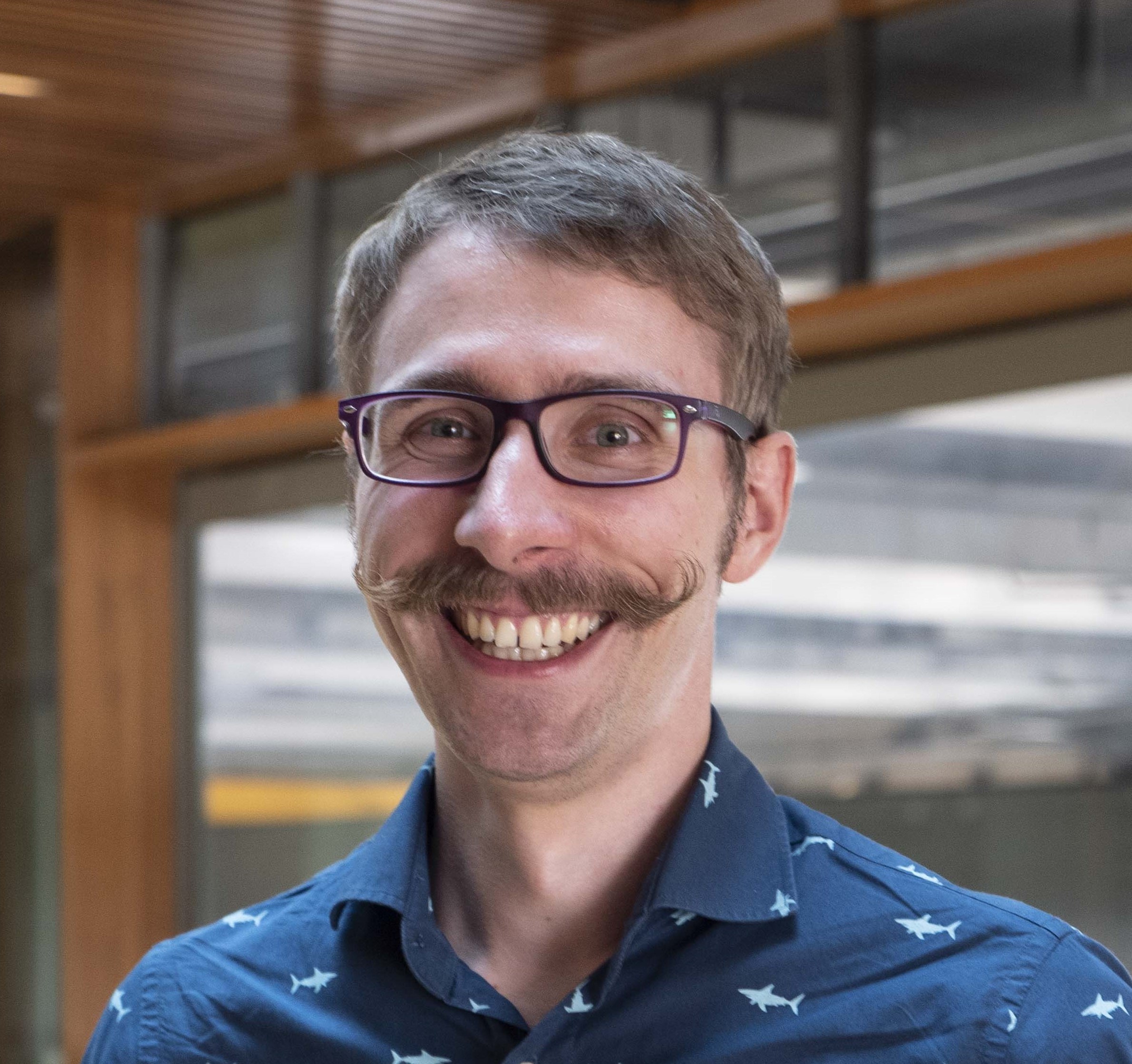 Dr Felix Wiesner is an Assistant Professor at the University of British Columbia and study the role of engineered timber in fire safety. I work in the Faculty of Forestry as part of the Wood Science department. My research focus has mostly been experimental, considering fire dynamics in timber compartments and the structural fire capacity of engineered timber products. In addition, I am interested in the performance of timber in exterior building or infrastructure setting. This closely interfaces with wildfire considerations for the wildland urban interface (WUI), especially when it comes to smouldering.
Dr Felix Wiesner is an Assistant Professor at the University of British Columbia and study the role of engineered timber in fire safety. I work in the Faculty of Forestry as part of the Wood Science department. My research focus has mostly been experimental, considering fire dynamics in timber compartments and the structural fire capacity of engineered timber products. In addition, I am interested in the performance of timber in exterior building or infrastructure setting. This closely interfaces with wildfire considerations for the wildland urban interface (WUI), especially when it comes to smouldering. Arnaud Trouvé is Professor and Chair in the Department of Fire Protection Engineering at the University of Maryland in College Park, USA. He joined the Faculty in 2001 with a Ph.D. (1989) and Engineering Degree (1985) from École Centrale of Paris, France, and with previous experience as a combustion research engineer. Professor Trouvé’s research interests include fire modeling and Computational Fluid Dynamics (CFD); application of data assimilation to fire and combustion; and physical modeling of combustion- and fire-related phenomena, including compartment fires, wildland fires and explosions. Professor Trouvé is a Fellow of the Combustion Institute and the recipient of the 2017 FORUM Sjölin Award. He has served on the editorial boards of the Proceedings of the Combustion Institute, Progress in Energy and Combustion Science, Combustion and Flame, and Fire Technology, and is currently on the editorial boards of Combustion Theory and Modelling and the Fire Safety Journal. Professor Trouvé is also a past Chair of the US Eastern States Section of the Combustion Institute (ESSCI) and a past Member of the Executive Board of the International Association for Fire Safety Science (IAFSS). He is a co-Chair of a recent initiative endorsed by IAFSS and called the “IAFSS Working Group on Measurement and Computation of Fire Phenomena” (the MaCFP Working Group) and the past Chair of a new network of leading higher-education institutions and research laboratories in fire safety engineering called the International Fire Safety Consortium (IFSC).
Arnaud Trouvé is Professor and Chair in the Department of Fire Protection Engineering at the University of Maryland in College Park, USA. He joined the Faculty in 2001 with a Ph.D. (1989) and Engineering Degree (1985) from École Centrale of Paris, France, and with previous experience as a combustion research engineer. Professor Trouvé’s research interests include fire modeling and Computational Fluid Dynamics (CFD); application of data assimilation to fire and combustion; and physical modeling of combustion- and fire-related phenomena, including compartment fires, wildland fires and explosions. Professor Trouvé is a Fellow of the Combustion Institute and the recipient of the 2017 FORUM Sjölin Award. He has served on the editorial boards of the Proceedings of the Combustion Institute, Progress in Energy and Combustion Science, Combustion and Flame, and Fire Technology, and is currently on the editorial boards of Combustion Theory and Modelling and the Fire Safety Journal. Professor Trouvé is also a past Chair of the US Eastern States Section of the Combustion Institute (ESSCI) and a past Member of the Executive Board of the International Association for Fire Safety Science (IAFSS). He is a co-Chair of a recent initiative endorsed by IAFSS and called the “IAFSS Working Group on Measurement and Computation of Fire Phenomena” (the MaCFP Working Group) and the past Chair of a new network of leading higher-education institutions and research laboratories in fire safety engineering called the International Fire Safety Consortium (IFSC). Dr Xinyan Huang is an Associate Professor at The Hong Kong Polytechnic University and the Deputy Director of the Research Centre for Fire Safety Engineering. He received his PhD from Imperial College London, MSc from UC San Diego, and BEng from Southeast University, and was a Postdoc at UC Berkeley. Dr Huang is a Combustion Scientist and a Fire Safety Engineer who has co-authored over 200 journal papers. He is an Associate Editor of Fire Technology and International Journal of Wildland Fire, an editorial member of J. Building Engineering, Fire Safety J. and Fire and Materials, a Chartered Building Services and Fire Engineer, a committee member for HK Fire Safety Code, and a Fire Expert for HK High Court. He receives the NSFC Excellent Young Scientists Fund, Bernard Lewis Fellowship and Sugden Best Paper Award from Combustion Institute, “5 under 35” and Bono Award from the Society of Fire Protection Engineers (SFPE).
Dr Xinyan Huang is an Associate Professor at The Hong Kong Polytechnic University and the Deputy Director of the Research Centre for Fire Safety Engineering. He received his PhD from Imperial College London, MSc from UC San Diego, and BEng from Southeast University, and was a Postdoc at UC Berkeley. Dr Huang is a Combustion Scientist and a Fire Safety Engineer who has co-authored over 200 journal papers. He is an Associate Editor of Fire Technology and International Journal of Wildland Fire, an editorial member of J. Building Engineering, Fire Safety J. and Fire and Materials, a Chartered Building Services and Fire Engineer, a committee member for HK Fire Safety Code, and a Fire Expert for HK High Court. He receives the NSFC Excellent Young Scientists Fund, Bernard Lewis Fellowship and Sugden Best Paper Award from Combustion Institute, “5 under 35” and Bono Award from the Society of Fire Protection Engineers (SFPE).